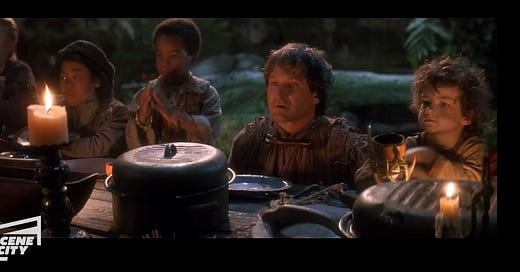In my city, like many American cities, Christians proclaim the gospel to a disenchanted city, and often a disenchanted church. As James Smith has written, “It is a mainstay of secularization theory that modernity ‘disenchants’ the world.”1 This disenchantment is not merely a move away from the spiritual to the natural, but, according to Charles Taylor, a “shift in the location of meaning, moving it from ‘the world’ into ‘the mind.’”2 No longer is significance found within a thing itself but in our understanding of the thing. The disenchantment is not necessarily a move away from the unseen realm but a move toward individual understanding, where “minds are ‘bounded,’ inward spaces. So the modern self, in contrast to this premodern, porous self, is a buffered self, insulated and isolated in its interiority.”3 This insulation in the mind necessarily leads to social insulation as well. As Smith describes, “The buffering of the self from alien forces also carves out a space for a nascent privacy, and such privacy provides both protection and permission to disbelieve.”4 Therefore, the modern, disenchanted world into which we proclaim the gospel tends to listen and respond to ideas as individuals and moves away from the social formation of wonder and shared discernment. The buffered self moves away from seeing reality as enchanted or truth as discerned with the community. The result is individualistic and lonely people lacking hope and belonging while still longing for something greater. As an invitation into something more, our proclamation of the gospel is a declaration of the kingdom of God as the enchanted world that Jesus is building but also seeking to confront the very way our hearers hear and see the world. We do this by inviting them to see what is true even though their means of seeing and knowing truth may not account for it. In short, gospel proclamation is an invitation to live by faith into the kingdom that is not fully realized and which is only seen by faith through embodied participation.
Rather than epistemological argumentation against the buffered self, we invite others to live by faith in Jesus by telling the narrative of a better, truer reality than the world offers. We seek to proclaim an enchanted social imaginary that moves beyond disenchantment and liberates the buffered self from individualistic confines and into the shared life of the kingdom of Jesus. This liberation requires more than just hearing words or ideas; it requires social interaction and participation in responding to the good news in embodied ways.
A metaphor for learning to see through enacted faith is demonstrated in Stephen Spielberg’s 1991 movie Hook. Pan returns to Neverland as an adult in the scene and sits at a table with the Lost Boys. Rufio, one of the boys, calls them together to say grace over what appears to be a table of empty serving platters and bowls. After the quick prayer, the boys dig in with fervor and delight. Pan appears confused by all the commotion. From his view, he cannot (or will not) see anything but a table of empty platters and delusional boys pretending to eat. Pan’s disenchanted, buffered self cannot see what the boys see, so he is confused by the whole scene.
As Pan questions why they are all pantomiming this feast, some of the boys tell him he has to use his imagination. They invite Pan to see beyond his disenchanted assumptions and to imagine something beyond what he believes is real. While the boys invite him to use his imagination, Pan gives in by pretending to pull back an empty spoon and fling it onto Rufio. Pan’s act of faith, his willingness to accept the invitation to see beyond what he thinks is reality, results in Rufio getting hit in the face with something like rainbow sorbet. To Rufio’s displeasure–and Pan’s utter amazement–the simple act of embodied participation opens up an incredibly new reality to Pan. The once empty table is filled with culinary delights; what seemed like delusional feasting is now seen as extravagant provision. What was unseen is now seen. The feast that was right under Pan’s nose required Pan to join in a new way of seeing, in order to see.
What if we proclaimed the good news kingdom while offering an invitation to see beyond the disenchanted ways of our buffered selves and into a kingdom-shaped social imaginary that requires our shared participation? A way of proclaiming where in the hearing and responding to this good news, a new way of seeing is made possible. A way that just might reveal what was already present before we could see: a table filled with a feast you did not prepare, but are invited to join!
James K. A. Smith, How (Not) to Be Secular: Reading Charles Taylor (Grand Rapids, MI: William B. Eerdmans Publishing Company, 2014), 28.
Smith, How (Not) to Be Secular, 28–30.
Smith, How (Not) to Be Secular, 30.
Smith, How (Not) to Be Secular, 31.





I definitely feel like society has become too isolated and I'm a writer. We love isolation. However, every time I attend a social event, I dread it and think of ways to get out of it. Then I finally decide that I'm no coward and attend anyway. The funny thing is, I never have a bad experience, either. It's often rewarding. Perhaps what we take in every day shapes our minds to fear a more social life. Every potential friend is a potential enemy. Every chance to break bread with others is a potential chance to get out face broken by others. I think we need to move past this. It's definitely causing a lot of harm. Great post, Gino.